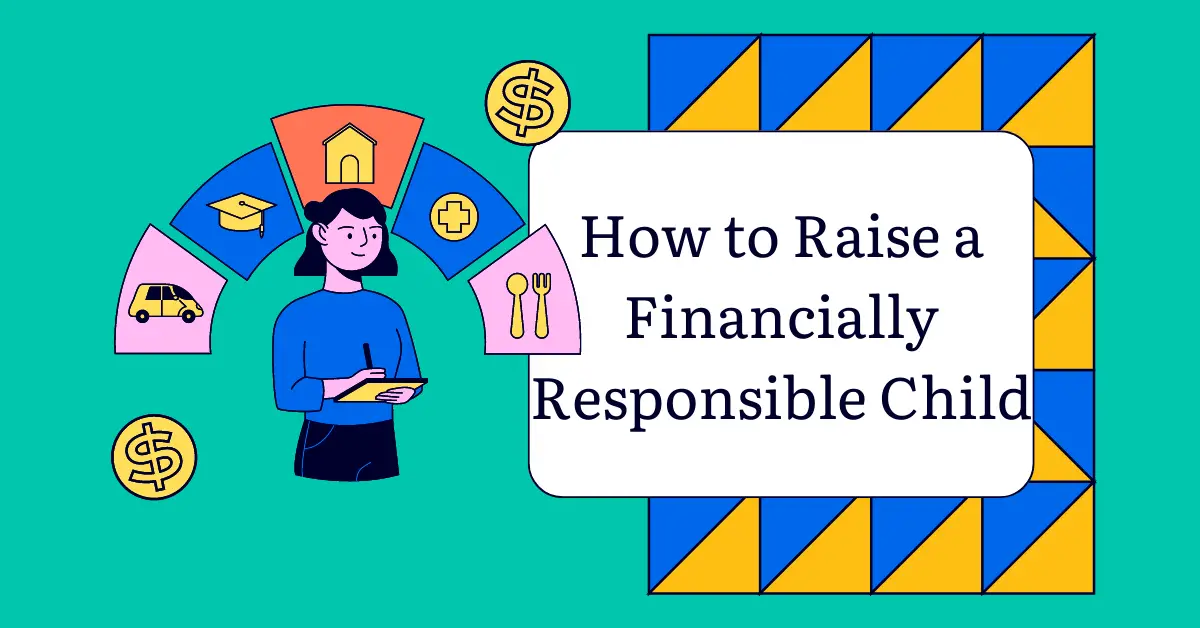Our school system’s lack of preparation for youth today to face the financial challenges of adult life is perhaps its most significant shortcoming.
I can remember one time in high school when we discussed compounding interest’s effect on retirement savings. I was in grade 8 – I didn’t even have a job.
Where our school system falls short on this front, we as parents must help our kids become financially literate. Unfortunately, the topic of money is taboo in most families and that’s hurting our ability to raise a financially responsible child.
So where do we start?
Don’t forget to check out our 5 Tips for Saving for University
Start Financial Lessons Early
It’s important to start teaching your kids about money early on in life. The environment our kids are raised in plays a large role in shaping their personalities. Ingraining a healthy relationship with money and finances early in life will help to make the subject something they are comfortable with as they pass into adulthood.
Activities For Younger Kids To Develop Money Skills
We have started including our 6-year-old in activities to help him gain respect for what things cost, appreciate what we have, and build the foundation for future lessons as he grows up. Some ideas if you have a young child you are teaching about money:
- Take a trip to the corner store and give your child $5. You can help them to decide what they can and can’t buy with their $5 and make decisions for themselves on how much things cost and what tradeoffs they might need to make to get what they want.
- As they get better with math, take them with you places with cash. Have your children be the money manager for the trip and do the math on what bills or coins are enough to pay with and how much change they receive.
- Do your grocery shopping as a family. Get them to help make decisions on which products are a better buy and why.
All of these ideas will help give an introduction and a basis for what things in the real world cost and how much a number of small purchases add up quickly. Building this base of knowledge is important because as they get older and you begin to discuss savings and budgeting, your kids will have a better grasp on what the dollar values mean.
If you’ve found this insightful, please enter your email and we’ll keep you updated with our best stuff
Teach Your Kids About Money With Everyday Examples
For those of a certain generation, money is a taboo subject. As a kid, my mom told me I should never ask somebody how much they make. Baloney! Talk to your kids about hourly wages and salaries. Explain the work it has taken to get where you were and the mistakes you have made along the way.
The best teaching material you have is right there in your everyday life. Now I’m not saying pass along all of your financial stresses to your kids – we are teaching here, not traumatizing. The financial decisions you make and don’t think twice about are great lessons you should share with your kids.
We already covered the grocery store with your kids while they are younger. So let’s talk about some examples as they get older.

Making Versus Buying Lunch
If you’re like us you value your sleep and make your lunch the night before instead of waking up earlier to do it in the morning. Have your kids come help and make their lunch and when you can reinforce the financial importance of why you take a lunch, instead of buying it.
Lessons are often much more relatable if you can tie the lesson back to something they understand. If you explain that taking leftover dinners costs $1-2 each day that’s great. But the lesson improves if you tell your kids that buying lunch is $15 and so taking leftovers for just a week saves you the same amount as a video game costs. Now there is a tangible benefit that is easy for anybody to understand.
Budgeting For A Large Expense
Take your older kids through your monthly budget. Explain each number to them and where it comes from. This again will help to put the value of money into perspective. By walking your kids through the monthly budget you’ll help your children to understand why being financially responsible is key to affording large expenses like a family vacation.
If you’re budgeting for a new baby – try out our child calculator too!
Show Them The Impact Of Debt
Most people think of credit cards and debt as scary – but they don’t have to be.
Show your kids a loan statement you have and what the cost of interest is. Show them that on loans you actually aren’t paying the loan down with the monthly payment, you’re paying down principal and interest.
Giving your kids a healthy respect for debt and understanding the dangers of carrying high-interest debt like a credit card balance will help them make informed decisions as they get older. If credit cards are used responsibly, there is actually no reason not to spend every dollar you spend with them. They give protections that debit cards don’t. They give cash back and other perks like free extended warranties. But none of that matters if there isn’t a healthy respect for how dangerous high-interest debt can be and how quickly that will spiral out of control.
There is no better way to learn life lessons than by actually being shown. Be open with your finances and the decisions you have to make. It will help your kids to avoid the same mistakes you have made and raises a more financially responsible child as a result.

Introduce Your Kids To Budgeting and Saving
In Dan Ariely’s book Predictably Irrational, he discusses at length how difficult it is to save money after you already have it. He describes a company that saw incredible success with their employee’s retirement savings plans by having new employees commit large portions of future raises towards their retirement savings. This is effective because it is far easier to put away the money you don’t have yet than it is to put away what you have in your account already.
By starting early and reinforcing that saving before spending is important – and that saving is not optional – you develop a healthy relationship with money for your kids and family as a whole.
Teaching Good Saving Habits
Starting your kids out with good saving habits is a required step in raising a financially responsible child. There are several ways to introduce these habits early.
- Start with a savings jar or piggy bank that has a reward for a certain goal in the future. It will teach the value of saving over the long term and not requiring instant gratification from their money.
- Set savings goals. Set short-term and long-term goals and help them calculate how long each goal will take to achieve based on their current allowance or part-time job.
- For teens, you can start a practice investing account. You can explain the risk profiles of different investments, the power of compounding interest, and the importance of diversity.
- Encourage positive choices, don’t criticize poor ones. Let your kids make mistakes – we make mistakes all the time with our money so, of course, they will too. The important part is that they learn these lessons early instead of later when the stakes are higher.
Wrapping Up
Raising a financially responsible child will help their life in immeasurable ways. Starting saving first before spending is an important lesson to learn early in your child’s life.
I hope we’ve helped give you some inspiration on how to raise your child with financial literacy that unfortunately our school system lacks any substantial education in.
Be open with your kids about the family finances. It will help foster a healthy relationship with money instead of making the topic something taboo and scary.

